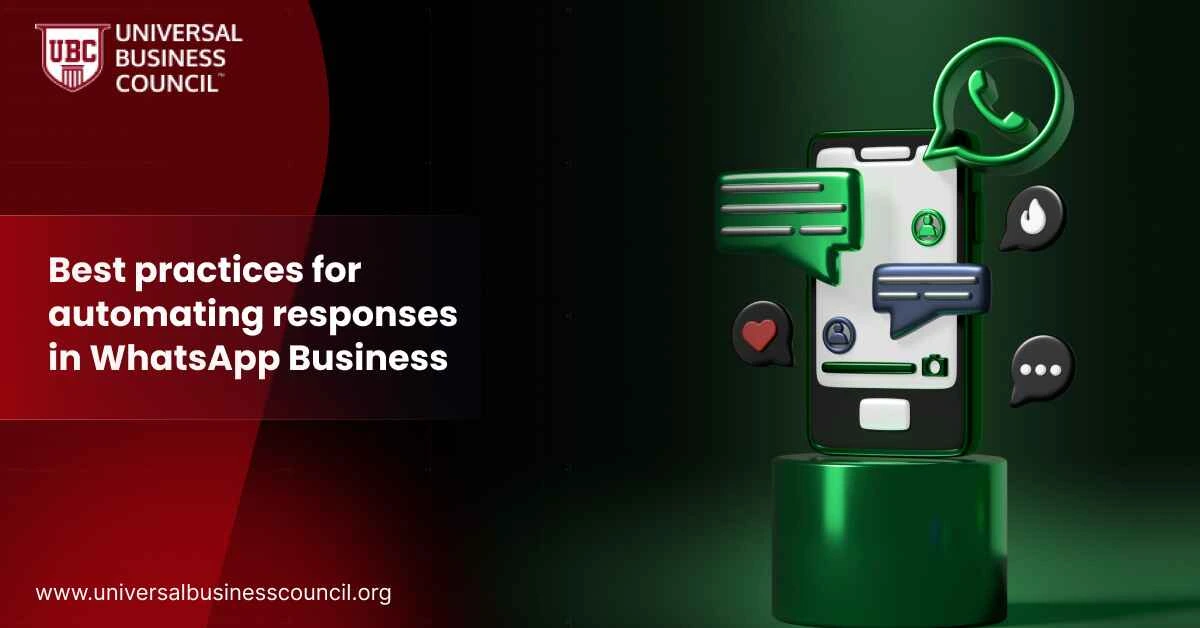
What is WhatsApp Business Automation?
WhatsApp Business offers several features that enable businesses to automate customer communication. These tools help businesses respond to customer queries quickly and efficiently, reducing manual work and improving response times. The key automation features available on WhatsApp Business include:- Quick Replies: Pre-set responses to frequently asked questions.
- Greeting Messages: Automated messages sent when customers first contact your business.
- Away Messages: Responses sent when you are unavailable.
- Automated Workflows: Advanced automation using WhatsApp Business API for large-scale businesses.
Why Automate Responses on WhatsApp Business?
Automating responses in WhatsApp Business offers several key advantages:1. Save Time and Increase Efficiency
Automating frequent customer queries allows businesses to handle multiple inquiries simultaneously, without requiring human intervention. This helps businesses save valuable time and focus on more complex tasks.2. Improve Customer Satisfaction
Customers appreciate fast responses. Automated messages provide instant replies, improving the overall customer experience. Quick answers to common questions enhance satisfaction and build trust.3. 24/7 Availability
Automated responses can be set up to work around the clock, ensuring that customers receive help even outside business hours. This is especially important for businesses with global clients across different time zones.4. Ensure Consistency
Automation ensures that customers receive the same information every time, reducing human error. Consistent responses help maintain a professional and reliable brand image.Best Practices for Automating Responses in WhatsApp Business
1. Set Up Quick Replies for Frequently Asked Questions
Quick replies are pre-written messages that businesses can use to answer common questions instantly. Setting them up is simple and ensures customers get timely, consistent answers.Steps to Set Up Quick Replies:
- Open a chat.
- Tap the attachment icon and select “Quick Replies.”
- Create a quick reply by typing the message and assigning a shortcut.
- Use the shortcut in any chat by typing “/” and selecting the reply.
Best Practices for Quick Replies:
- Use simple language: Ensure that your messages are clear and easy to understand.
- Cover common questions: Address frequently asked questions such as business hours, product details, shipping information, etc.
- Update regularly: Keep your quick replies up to date to reflect changes in your products or services.
2. Use Greeting Messages to Welcome New Customers
Greeting messages are the first interaction a customer will have with your business on WhatsApp. This is a great opportunity to make a positive first impression and provide essential information.Best Practices for Greeting Messages:
- Be friendly and professional: Use a welcoming tone to engage customers.
- Provide important details: Include links to your website, a list of available services, or any helpful resources.
- Set expectations: Let customers know when they can expect a response or offer support.
3. Set Away Messages When You’re Unavailable
Away messages are useful when you’re unable to respond immediately. These messages inform customers that you’re unavailable and let them know when you’ll be able to respond.Best Practices for Away Messages:
- Be polite: Acknowledge the customer’s message and reassure them that you will get back to them as soon as possible.
- Provide an alternative: If applicable, offer an alternative contact method, such as email or phone support.
- Automate follow-ups: Schedule follow-up messages to be sent once you’re available again.
4. Automate Workflows with WhatsApp Business API
For businesses with a large volume of customer interactions, the WhatsApp Business API offers advanced automation features. These can be used to create workflows that automate the entire customer journey, from initial contact to order updates.Key Features of WhatsApp Business API:
- Chatbots: Automate responses to common inquiries and process orders.
- Drip Campaigns: Send a series of messages over time to guide customers through a sales funnel or nurture leads.
- CRM Integration: Sync customer data with your CRM system for personalized messaging and tailored responses.
Best Practices for WhatsApp Business API:
- Segment your audience: Customize automated workflows based on customer preferences, behaviors, or location.
- Personalize messages: Use customer data to send targeted, personalized messages that feel human and relevant.
- Test and refine workflows: Regularly review the performance of your automated workflows to ensure they are providing value to customers.
5. Monitor and Analyze Automated Messages
To ensure your automated messages are effective, regularly monitor performance metrics and customer feedback. Tools like WhatsApp Insights or third-party analytics platforms can help you track how well your automated responses are performing.Key Metrics to Track:
- Response time: How quickly are automated messages being delivered?
- Engagement rates: Are customers responding to your messages or engaging with the content you send?
- Customer satisfaction: Are customers happy with the automated interactions, or do they need more personalized support?
6. Ensure Compliance with WhatsApp’s Policies
WhatsApp has strict guidelines on business messaging, particularly around customer privacy and data security. It is important to ensure that your automated responses comply with these policies to avoid any issues.Key Compliance Considerations:
- Respect privacy: Do not collect or use customer data without their consent.
- Follow WhatsApp’s Business Messaging Policy: Adhere to their rules regarding spam, messaging frequency, and content.
- Comply with local laws: Make sure your automated processes are in line with local regulations, such as GDPR in the European Union.
Tools for Enhancing WhatsApp Business Automation
Several tools can help you automate responses and streamline communication on WhatsApp Business:| Tool | Description | Benefits |
| WATI | Provides WhatsApp Business API integration and automation tools. | Automates messages, integrates CRM, and offers personalized interactions. |
| Interakt | A WhatsApp automation tool that helps businesses set up workflows and automate responses. | Customizes automation, integrates with CRMs, and handles customer inquiries. |
| Twilio | Messaging platform that enables advanced automation for WhatsApp. | Provides APIs for advanced automation features and easy integrations. |




Leave a Reply